Earlier this year, LA Fitness called the police on two African American men because they didn’t believe the men had memberships, even though both of the men had checked in and one of the men had been a member of the gym for eight years. The police arrived and requested the men leave. Three LA Fitness employees, including the manager, were later fired for the incident [1].
While some may argue this isn’t an example of racism or racial profiling, with similar incidents occurring at places like Starbucks and Waffle House, it’s evident that racism is a clear problem, and the gym is only one of the areas in which racism exists.
You may be thinking that you don’t understand what racism has to do with fitness. Why is it important?
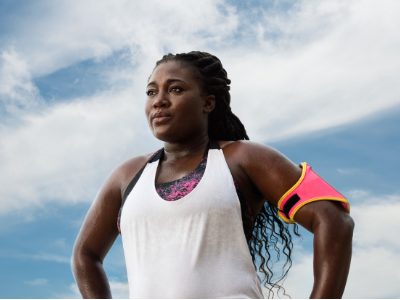 I don’t personally believe we can talk about fitness or empowerment without discussing race, politics, access, inclusivity, representation, and even more, who gets a seat at the table — who gets to be fit, who gets to be represented in fitness, and who gets the opportunities. These issues are all inextricably intertwined.
I don’t personally believe we can talk about fitness or empowerment without discussing race, politics, access, inclusivity, representation, and even more, who gets a seat at the table — who gets to be fit, who gets to be represented in fitness, and who gets the opportunities. These issues are all inextricably intertwined.
While the LA Fitness situation may be a rare example, that doesn’t mean that racism and microaggressions aren’t occurring every day in fitness, because they most certainly are. The everyday examples are far subtler.
Here are three examples of everyday racism in the fitness world.
1. Lack of Diversity and Inclusivity
Last year, I wrote an article entitled, Is Fitness Only for Thin White Women? and Girls Gone Strong also published an article, Let’s Talk about Black Female Representation in Fitness, which both discuss the lack of representation of black and brown women across the fitness industry [2].
If you look at your favorite fitness magazines or popular #fitspo accounts, you are likely to find an overwhelming amount of young, blond women, touting thin but aesthetically pleasing bodies – lean and shapely with just the right amount of muscle.
One of the major ways we see racism play out in fitness is lack of representation and inclusion.
Opportunities in fitness are numerous and bountiful but few are given to women of color.
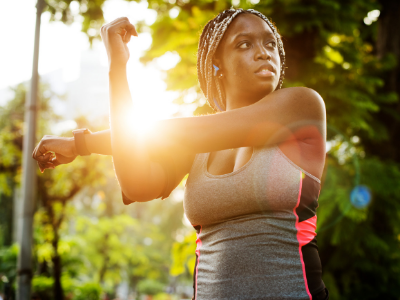 Even when provided to women of color, they are often given to racially ambiguous or “exotic” looking women whose features conform to the Eurocentric beauty ideal – lighter skin with straight hair or a looser curl pattern – an effect of colorism. I can think of only a handful of individuals who break that mold. A handful is not enough.
Even when provided to women of color, they are often given to racially ambiguous or “exotic” looking women whose features conform to the Eurocentric beauty ideal – lighter skin with straight hair or a looser curl pattern – an effect of colorism. I can think of only a handful of individuals who break that mold. A handful is not enough.
Inclusion goes a step beyond diversity. If we want to develop an inclusive fitness industry that requires including black and brown women to be members of advisory boards, to assist in the planning of events, to work at companies, to serve as consultants, and to be the project managers. You need to hire black and brown women if you want inclusive fitness spaces. Don’t ask them to volunteer or educate for free. Pay them.
2. Tokenism
Equally important as the lack of representation, and inextricably intertwined, is tokenism. According to dictionary.com, the definition of tokenism is “the practice of making only a perfunctory or symbolic effort to do a particular thing, especially by recruiting a small number of people from under-represented groups in order to give the appearance of sexual or racial equality within a workforce.”
It’s obvious when a company or individual is making an attempt to appear diverse or check off the diversity box by including one person of color in their campaign or inviting one person of color to speak at an event. It’s cheap. It’s artificial. It’s racist.
Don’t tokenize black people and other people of color to check your diversity box. Do the work required to actually be inclusive.
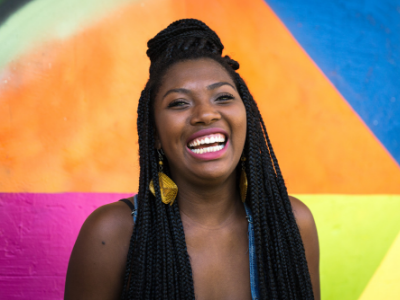 This can be avoided by making genuine attempts to develop relationships with people of color and widening your social networks. If the majority of people in your personal or professional circle look like you, there’s a huge chance it’s time to do some expansion. Even if your geographic location makes this challenging, social media provides you the opportunity to connect with people all over the world from all different backgrounds.
This can be avoided by making genuine attempts to develop relationships with people of color and widening your social networks. If the majority of people in your personal or professional circle look like you, there’s a huge chance it’s time to do some expansion. Even if your geographic location makes this challenging, social media provides you the opportunity to connect with people all over the world from all different backgrounds.
3. Complicity
One of the most prevalent ways that everyday racism occurs in the fitness industry is through complicity. Many people are simply choosing to remain silent on issues of racism, white supremacy, and the myriad of other issues that lead to the oppression of marginalized groups. It may be from fear of upsetting or losing followers, damaging brand relationships, or perhaps they also hold similar views.
Overall wellness also includes mental and emotional well-being, among other things. As such, fitness professionals cannot simultaneously help women and men with their fitness and wellness while remaining silent on issues of racism.
As a black woman, racism and white supremacy directly affects my mental health, my emotional health, my stress levels, and my overall well-being. It’s a threat to my ability to feel safe in my own skin.
Complicity is not only a threat to people’s well-being, but it’s also an example of privilege in action.
If you can choose not to discuss or educate yourself on the oppression of marginalized groups, it and doesn’t affect your life, that’s a form of privilege. You have the ability to ignore or remain silent on important issues because there is no direct negative impact on you.
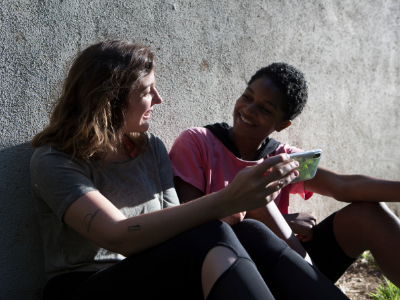 The harsh truth is that silence is complicity, and you are directly upholding racism by not speaking out. If you want to do what is right and work to end racism in fitness, it likely means you have to be willing to risk losing followers, losing popularity, and perhaps even losing financial benefits from sponsorships or business deals. If you aren’t willing to risk those things, then you have to swallow the hard truth that your personal interests and the ways in you are likely benefiting from white supremacy are more important to you than your values.
The harsh truth is that silence is complicity, and you are directly upholding racism by not speaking out. If you want to do what is right and work to end racism in fitness, it likely means you have to be willing to risk losing followers, losing popularity, and perhaps even losing financial benefits from sponsorships or business deals. If you aren’t willing to risk those things, then you have to swallow the hard truth that your personal interests and the ways in you are likely benefiting from white supremacy are more important to you than your values.
You don’t get to call yourself an “ally” if you aren’t willing to put your privilege on the line and show up when it matters. You can’t use those terms when it’s convenient. That’s performative, and it’s inauthentic.
Where Do I Go From Here?
There are some tangible steps you can take to help create a better, more genuinely inclusive fitness industry.
Believe People
When people share their experiences with you regarding racism they have experienced – in fitness or other arenas — believe them. I caution you from defaulting to the line of thinking that their experiences are just anomalies.
Just because you haven’t personally seen or don’t frequently experience racism occurring doesn’t mean it isn’t real or doesn’t happen every day.
Don’t silence people’s lived experiences or voices. Believe people’s experiences and resist the urge to interject your perspective or experiences as justification to combat the truths being presented. Don’t center yourself.
Support People in Line With Your Values
One of my favorite aspects of the free enterprise system is that get to choose with whom and how we spend our money. We have the choice to not spend our money with or support individuals or businesses who don’t fall in line with our values.
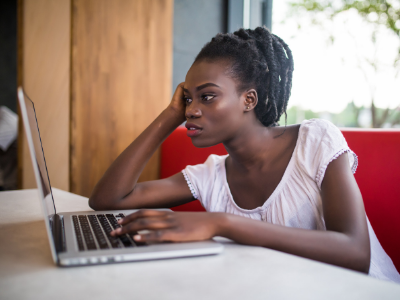 I don’t financially support people who aren’t in line with my values, who aren’t working to end oppression, or who are passive and complicit. I don’t do business with them, I don’t spend money with them, and I don’t promote them or their work.
I don’t financially support people who aren’t in line with my values, who aren’t working to end oppression, or who are passive and complicit. I don’t do business with them, I don’t spend money with them, and I don’t promote them or their work.
Someone may be a “good person” or “do great things for the fitness community” if you choose to ignore their political views or their complicity, but you can’t selectively support parts of people. You either support them or you don’t.
Ask Yourself Some Crucial Questions
- Is your favorite athletic clothing brand or supplement company featuring women who break the molds discussed above?
- Are the fitness events you are attending including a robust and diverse group of speakers?
- Is the makeup of the attendees diverse?
- Is your favorite fitness professional or blogger remaining complicit or are they using their voice and their platform to uphold the voices of the marginalized?
- Are you thinking critically about these issues and working to end your own complicity?
- Are you speaking out against racism in the fitness industry that you witness?
By believing people’s experiences, investing our money and resources with individuals and companies who are truly working to be inclusive, holding people accountable, and thinking critically, we can take steps towards creating a fitness industry we can be proud of.
References
- The Washington Post, LA Fitness called police on two black men they say said didn’t pay.
https://www.washingtonpost.com/news/business/wp/2018/04/20/la-fitness-employees-called-911-on-two-black-men-they-said-didnt-pay-they-had/?noredirect=on&utm_term=.5bdfaf78bcee - Chrissy King Fitness, Is Fitness Only For Thin, White Women? http://chrissyking.com/fitness-thin-white-women/
